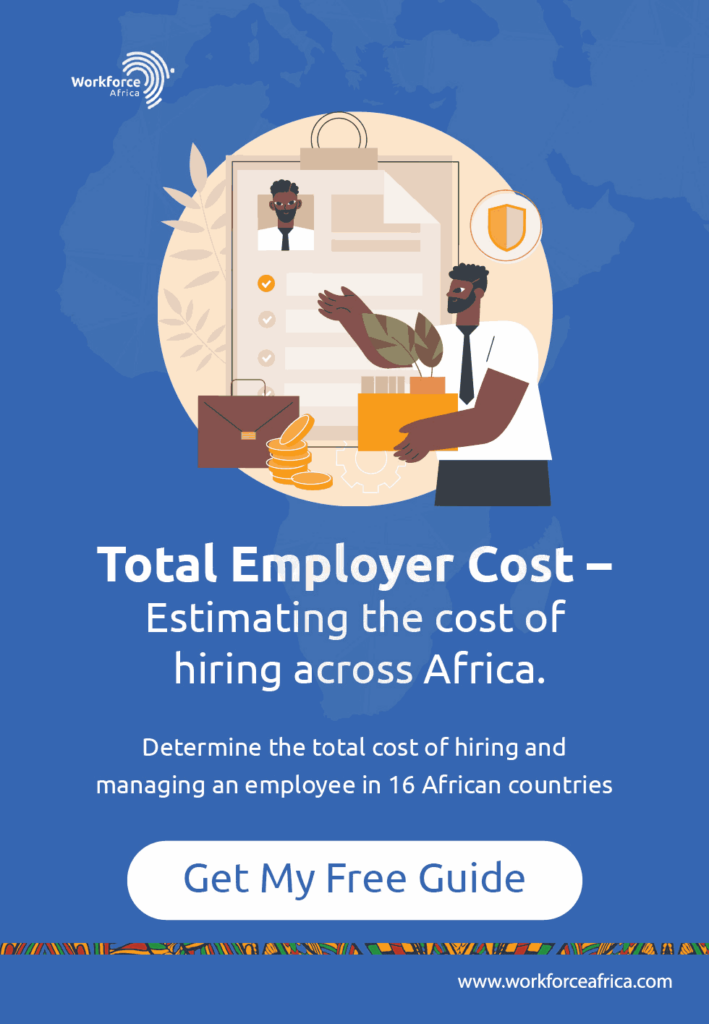
This Customer Service Week, we celebrate you — our clients. Your trust, feedback, and partnership drive everything we do. Thank you for being at the core of our mission.

Data entry and processing are prized assets globally. Many organisations now turn to Africa for outsourcing due to its quality work at competitive rates.
In this article, we look at why global organisations turn to Africa for low-cost data management.
Data has become the cornerstone of business operations in today's digital era, driving market strategies and informed decision-making across industries. The significance of data cannot be overstated.
However, while data holds immense value, data entry management is often overlooked despite its critical role. Businesses often face the dilemma of handling data entry services internally or outsourcing them.
Effective task management is essential to staying competitive, regardless of the company's size. As businesses expand, so does the volume of data they generate.
However, entrusting data entry tasks to in-house professionals already burdened with core business activities can impede organisational efficiency.
The diversion of resources and attention from primary objectives can hinder productivity and growth. Recognizing this challenge, businesses increasingly turn to outsourcing firms specialising in data entry services.
Effective data entry management is crucial for driving growth and maintaining competitiveness in today's dynamic business landscape.
Whether through internal resources or outsourcing partnerships, companies employ data entry professionals to streamline business processes.
To help manage their data effectively, organisations worldwide are turning to destinations like Africa for data entry outsourcing because of its quality work at a relatively low price.
With its vast, qualified, and youthful population, Africa is emerging as the next big destination for outsourcing.
The rapid development and expansion of local infrastructure across Africa signify a significant shift towards digitalisation and connectivity.
One of the most notable advancements is in the telecommunications sector, where telecom networks are being deployed at an accelerated pace.
This expansion has facilitated increased internet access for millions of Africans, bridging the digital divide and opening up new economic growth and development opportunities.
African governments recognise the potential economic benefits of this and are now investing in infrastructure projects to expand access to digital technologies.
This includes initiatives to improve internet connectivity, upgrade telecommunications networks, and invest in digital infrastructure such as data centres and cloud computing facilities.
Countries like Nigeria have taken proactive measures to meet the growing demand for outsourced labour by multiplying their internet speed.
This response reflects a recognition of the importance of reliable and high-speed internet connectivity in facilitating remote work and outsourcing activities.
By improving internet infrastructure, African countries are positioning themselves as attractive destinations for outsourcing services, including data entry, customer support, and IT services.
Urbanisation and city development drive significant demographic shifts across Africa.
This urbanisation trend, particularly among younger populations, contributes to the rapid expansion of infrastructure and access to digital technologies in urban centres.
As a result, Africa is emerging as a prime destination for outsourcing services, fueled by its growing pool of skilled labour and improving digital infrastructure.
According to the World Economic Forum, Africa is the world’s youngest continent, boasting an average age of just 18.
This demographic reality signals a significant influx of individuals entering the job market in the coming years, expanding the existing workforce.
This cohort of young professionals, equipped with relevant training and education, presents a promising opportunity for companies seeking to tap into this highly skilled outsourced talent pool.
Such collaborations offer mutually beneficial partnerships, capitalising on Africa's abundantly educated and motivated youth.
In contrast to numerous other developing regions, English enjoys widespread usage across many African countries.
Nations such as Sierra Leone, Liberia, Nigeria, South Africa, Kenya, Zambia, Tanzania, Uganda, and Rwanda, among others, designate English as a primary or official language.
This linguistic uniformity makes Africa an attractive outsourcing destination for organisations and startups based in English-speaking countries and regions.
Outsourcing operations to countries where workers possess native proficiency in English ensures seamless communication and understanding, driving efficient collaboration and workflow.
Moreover, Africa's linguistic diversity extends beyond English proficiency. French, for instance, serves as a prominent language across at least 11 African countries.
Additionally, Spanish, Portuguese, and German are spoken in various regions across the continent.
This multilingual advantage further enhances Africa's appeal as an outsourcing destination, catering to global companies' diverse language requirements.
Thus, whether in English or other languages, Africa offers a rich linguistic landscape conducive to effective communication and cross-cultural collaboration in outsourcing operations.
Thanks to Africa’s youthful workforce and its status as a developing destination for outsourcing data services, the cost of outsourcing to Africa is more economical compared to Latin America or Southeast Asia.
Africans have the skills and capabilities to take on various data-processing tasks.
Their age and entry-level experience also position them more favourably to companies seeking cost-effective outsourcing options.
Compare this to the more aged populations of India and Latin America, whose rates are higher, and it’s easy to see why many businesses are redirecting their outsourcing needs in Africa’s direction.
According to a report from Technavio, the data-entry outsourcing services market share is expected to increase by USD 552.63 million from 2021 to 2026.
With the market expected to grow at a CAGR of 6.1%., The need for prepared, structured data will only grow in the months and years ahead.
International corporations like Google, Salesforce, and Microsoft have already identified the untapped potential of the African market for their data labelling and annotation services.
Other companies will eventually follow suit, propelling Africa’s development and prime positioning for data entry even further.
Supported Post: Top 5 Reasons You Must Offshore to Africa
Below, we have compiled a list of benefits of outsourcing data entry services to Africa:
By outsourcing data entry roles to Africa, organisations can save on costs, resources, overheads, and investment. Thereby increasing their bottom line in the long run.
Quick Turnaround Time
One of the perks of outsourcing to Africa is that while you sleep through the night, we can get the job done while you wake up to see your service delivered the next morning. Saving you cost advantage and time.
Focus on Core Competencies
By outsourcing data entry tasks to Africa, businesses can focus their resources and attention on core competencies and strategic initiatives.
With Workforce Africa as your service provider, you can allocate your time and resources more efficiently, driving overall business growth and success.
Accurate Data Entry Services
As a leading management consulting firm in Africa, we provide our employees with the right training to excel in the course of their professional duties.
Data Security
African outsourcing companies place a premium on data security and privacy.
They follow strict international privacy standards. Employees of outsourcing firms like Workforce Africa are under obligation by the Non-Disclosure Agreement (NDA) to ensure high data security.
Recommended Post: Common Offshoring Mistakes to Avoid When Outsourcing to Africa
As a global organisation, recruiting and managing employees in Nigeria and across Africa can be complex. We can help you hire and manage your remote employees compliantly.
Also, managing compliance risk can take a toll on scarce time, so partnering with a global EoR like Workforce Africa is important to streamline your business growth across Africa.
Our ingenious solutions make it easier for global organisations to employ talent beyond borders.
Through these solutions, your organisation can employ staff to manage your data entry while remaining compliant with indigenous labour laws.
Schedule a free consultation today to learn how your organisation can easily leverage African talents to manage your data entry.